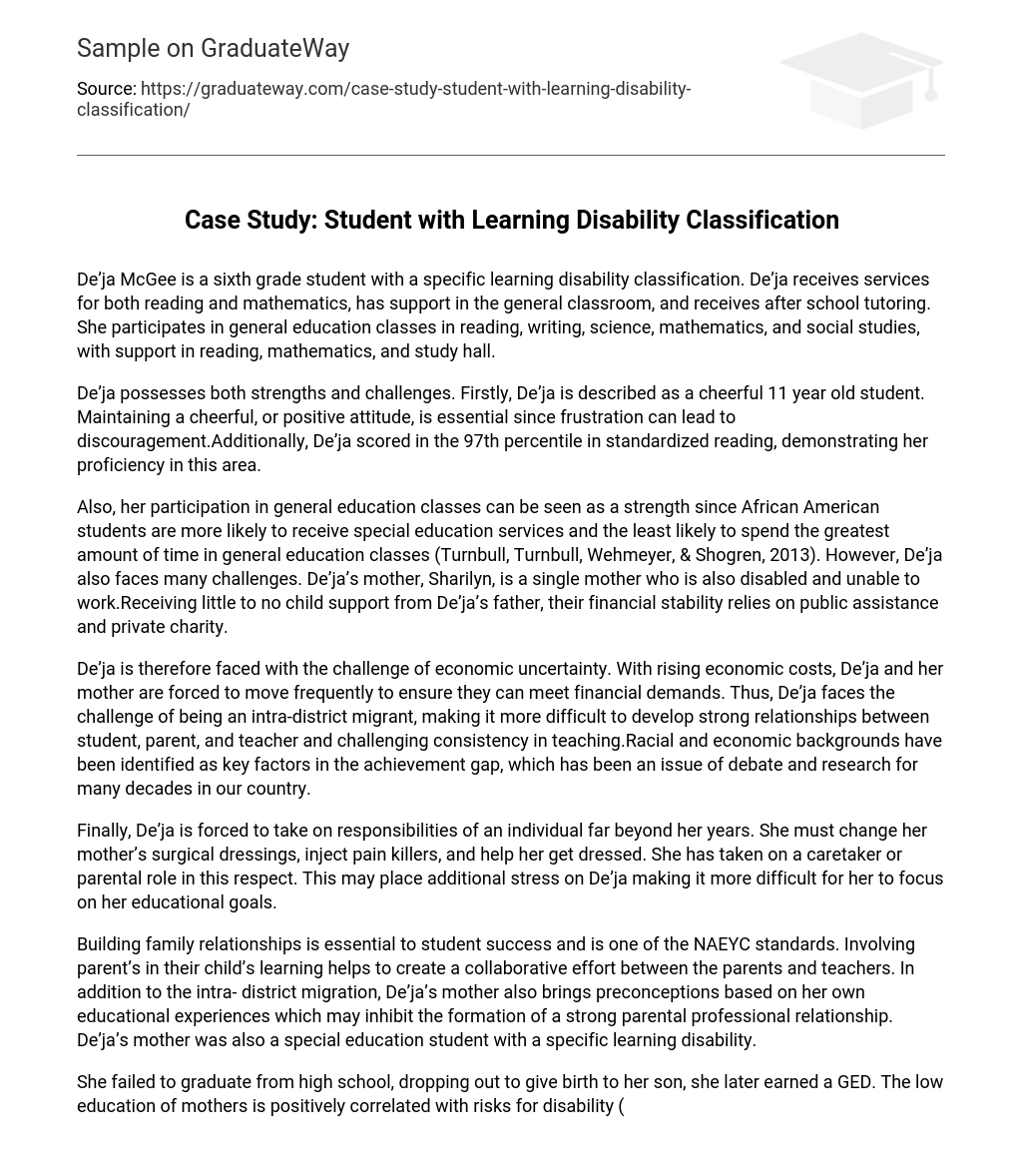De’ja McGee is a sixth grade student with a specific learning disability classification. De’ja receives services for both reading and mathematics, has support in the general classroom, and receives after school tutoring. She participates in general education classes in reading, writing, science, mathematics, and social studies, with support in reading, mathematics, and study hall.
De’ja possesses both strengths and challenges. Firstly, De’ja is described as a cheerful 11 year old student. Maintaining a cheerful, or positive attitude, is essential since frustration can lead to discouragement.Additionally, De’ja scored in the 97th percentile in standardized reading, demonstrating her proficiency in this area.
Also, her participation in general education classes can be seen as a strength since African American students are more likely to receive special education services and the least likely to spend the greatest amount of time in general education classes (Turnbull, Turnbull, Wehmeyer, & Shogren, 2013). However, De’ja also faces many challenges. De’ja’s mother, Sharilyn, is a single mother who is also disabled and unable to work.Receiving little to no child support from De’ja’s father, their financial stability relies on public assistance and private charity.
De’ja is therefore faced with the challenge of economic uncertainty. With rising economic costs, De’ja and her mother are forced to move frequently to ensure they can meet financial demands. Thus, De’ja faces the challenge of being an intra-district migrant, making it more difficult to develop strong relationships between student, parent, and teacher and challenging consistency in teaching.Racial and economic backgrounds have been identified as key factors in the achievement gap, which has been an issue of debate and research for many decades in our country.
Finally, De’ja is forced to take on responsibilities of an individual far beyond her years. She must change her mother’s surgical dressings, inject pain killers, and help her get dressed. She has taken on a caretaker or parental role in this respect. This may place additional stress on De’ja making it more difficult for her to focus on her educational goals.
Building family relationships is essential to student success and is one of the NAEYC standards. Involving parent’s in their child’s learning helps to create a collaborative effort between the parents and teachers. In addition to the intra- district migration, De’ja’s mother also brings preconceptions based on her own educational experiences which may inhibit the formation of a strong parental professional relationship. De’ja’s mother was also a special education student with a specific learning disability.
She failed to graduate from high school, dropping out to give birth to her son, she later earned a GED. The low education of mothers is positively correlated with risks for disability (Turnbull et al. , 2013). Parental education level is another challenge or risk factor that De’ja faces.
Educators are required to seek to understand how these factors influence De’ja’s education. A culturally responsive educator will address these barriers by highlighting De’ja’s strengths and providing culturally responsive instruction to De’ja and support to her mother helping to ensure De’ja’s success.





